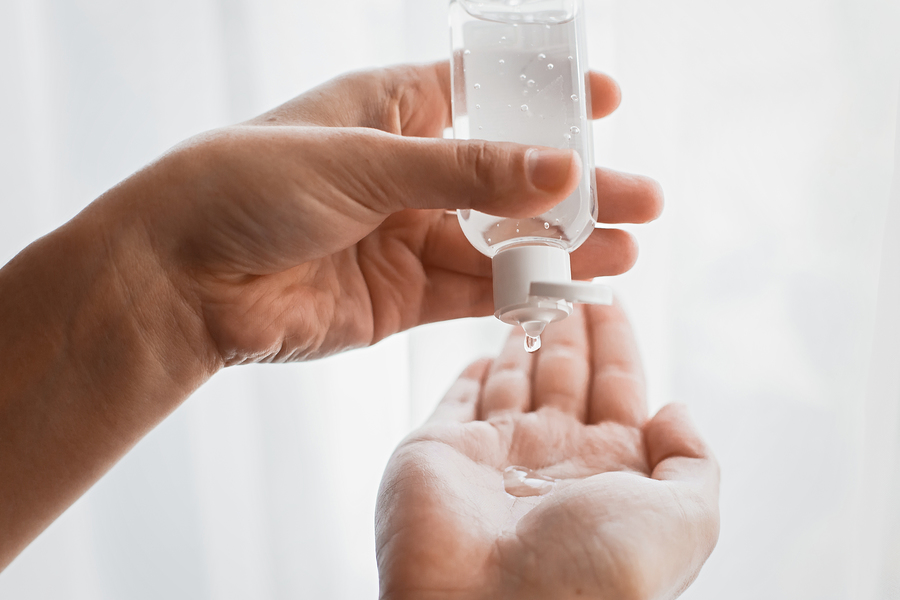Many types of diseases, including Alzheimer’s disease and cancer, seem to just happen, whether you take measures to prevent them or not. Environmental factors and genetics appear to play a bigger role than anything else. Others, like the novel coronavirus that has spread around the globe, seem to afflict people despite their best efforts at preventing the spread.
While you cannot eliminate every risk of disease for yourself and your family, you can help prevent the spread of communicable diseases, from coronavirus germs to the flu. You can also make some lifestyle changes that may help you reduce your risk of developing other diseases.
1. Choose a healthy diet deliberately.
All too many people in today’s fast-paced society consume an unhealthy diet by default. You might not deliberately choose to eat junk food, but since it often proves more readily available than healthier meal options—not to mention, in many cases, costs less—you may end up turning to it as a staple meal anyway.
If you want to reduce your odds of disease and give your body the best possible chance when it comes to fighting off infections, however, you should take the time to choose a healthier diet. A heart-healthy diet includes healthy fats, like avocado and olive oil, while avoiding saturated fats. Most types of healthy diets, such as cancer prevention diets, include maintaining a healthy body weight to help reduce the likelihood of developing specific types of illness and disease. Maintaining a healthy body weight can also help fight off infections, since obesity can actually work to decrease your overall immune function.
Consider the type of disease you most want to prevent, including the ones you face the highest risk for, when developing your diet. A diet high in vitamin C may help fight off infection, while a diet high in dietary fiber may help fight off cancer and heart disease. Do your research and know how the foods you choose can help protect you against a range of diseases.
2. Make preventative care a regular part of your plans.
Many people have discovered, in the midst of the coronavirus crisis, that poorly-managed health conditions placed them at higher risk for potentially life-threatening health complications. For many, the news that they fall into the high risk category for coronavirus infection came as a rude, and frightening, awakening. In many cases, a lack of preventive care has put them at risk.
So, make preventative care a regular part of your plans. Take care of vital screenings and procedures that can help protect your health, especially as you move into your forties and beyond. Schedule regular checkups with your doctor. If you notice any signs of illness, see your doctor before they get worse. Your doctor can help you create a plan that may prevent symptoms from worsening.
3. Get moving.
Obesity and a sedentary lifestyle can lead to a host of health complications, including a significantly higher risk for many diseases. Do not wait until your health starts to deteriorate to get moving. Instead, find a plan and a type of exercise that works for you—something that allows you to reap the benefits early in life and decrease your risk of illness and complications later. You do not have to become a fitness buff or live at the gym to see benefits from exercise.
Try some of these strategies:
- Work a walk into your schedule every day. In nice weather, get outside and walk around your neighborhood. Splash in the puddles in the rain. During the winter and summer, you may need to choose your walk times more carefully: wait for the weather to warm up in the winter, or head out early or late in the summer, so that your walk happens in pleasant conditions.
- Find a class that you enjoy. Check out yoga, spinning, pickleball, or martial arts. Explore dance fitness. Give that HIIT class at the gym a shot. Find a type of exercise that you genuinely look forward to and stick with it.
- Get down and play with the kids and grandkids. Instead of just looking on while your kids have all the fun, get down on the floor and play with them. Get active with them. Go outside and do some backyard sports together. All of that play adds up to quality, fun, exercise.
4. Stop any bad habits.
You know that smoking and drinking excessively can prove incredibly detrimental to your health, but you may not have considered the disease risk posed by those addictions. Smoking takes a heavy toll on your lungs and your heart, raising your risk of developing certain types of cancer and leaving you at a higher level of risk for developing diabetes. Drinking excessively can damage your liver, raise your risk of cancer, and increase your risk of heart disease and stroke.
Stop those practices as soon as possible to reduce your risk of developing those diseases. The sooner you stop smoking, the sooner you can reduce your risk of cancer and heart disease. If you struggle with drinking too much, consider getting help to kick the addiction entirely or reducing your drinking substantially. Your body can recover from those addictions, but the longer you wait, the longer it can take.
5. Wash your hands frequently.
If you want to reduce the spread of communicable diseases, wash your hands frequently. You should wash your hands:
- Before eating or drinking
- After using the bathroom or aiding someone else in the bathroom, including changing a child’s diaper
- After being outside or in public
- Before and after caring for someone in your home with symptoms of illness
- After you touch an animal or animal food
- Any time you touch a contaminated surface or item
- Before preparing food for yourself or others
Make sure you wash your hands properly to help decrease the spread of communicable diseases. Even mild or common illnesses, including coronavirus or the flu, can cause severe complications for elderly individuals or those with underlying health conditions. To wash your hands properly, wash for at least 20 seconds. Make sure that you wash everywhere: between your fingers, under any rings or other jewelry, and up past your wrists.
6. Clean and disinfect surfaces that you use regularly.
Whether at home or at work, proper cleaning and disinfecting can go a long way toward preventing the spread of communicable diseases. Make cleaning a regular part of your routine. During times of high transmission, including during cold and flu season as well as during the coronavirus crisis, you may want to prioritize cleaning more than ever.
Make sure your cleaning routine includes:
- Counters in high-traffic areas
- Doorknobs
- Computer keyboards
- Phones
- Bathroom areas, especially public restrooms
Pay particular attention to disinfection if someone in your household or at your office gets sick. The more care and attention you pay to cleaning those surfaces, the more you can reduce the spread of disease and keep yourself safer.
7. Get adequate sleep at night.
Inadequate sleep can quickly cause your immune system to suffer. People who get inadequate sleep have higher rates of infection after exposure to a common cold germ, not to mention serious illnesses. Your immune system functions better on adequate sleep. Lack of sleep, including lack of sleep due to chronic sleep disorders, can also increase the likelihood that you will suffer from many types of disease, including diabetes and cardiovascular trouble. Unfortunately, all too many people across America suffer from sleep deprivation. Instead of putting off that vital sleep, make sleep a priority in your life.
Are you struggling to get adequate sleep? Try:
- Installing blackout curtains in your bedroom. Outside lights, including security lighting, can make it difficult to get a good night’s sleep, since they trick your brain into believing that it’s time to be up and awake. Those lights can also prove incredibly distracting in the middle of the night. Many people find that they fall asleep more easily, and stay asleep longer, in complete darkness.
- Decreasing screen time before bed. Your devices, like exterior lights, can make it much harder for you to fall asleep each night. The blue light coming from your phone, your tablet, and even your television can keep you awake long past your bedtime, tricking your brain into believing that you need to stay awake and engaged instead of drifting off to sleep. Remove devices from your bedroom. If possible, try to turn your devices off at least an hour before bedtime. While blue light blockers can help decrease the challenges associated with device use, they may not do enough good to prevent disrupted sleep.
- Sticking to a sleep schedule. If you constantly go to sleep and wake up for the day at different times, your body may struggle to regulate. As a result, you may get inadequate sleep even on nights when you go to bed at a reasonable time and do not have to wake especially early the next morning. Try sticking to a consistent sleep schedule to retrain your body to get a better night’s sleep.
8. Reduce stress.
Stress can actively increase your risk of developing many types of complications and diseases, including obesity, heart disease, stroke, and diabetes. Headaches, asthma, and depression can also increase substantially along with high stress rates. Not only that, many people who suffer from excessive stress get sick more often, since stress depresses the immune system and makes it harder to fight off infection.
Sometimes, stress comes from the outside whether you want it to or not.
Other times, however, you can take steps that will reduce your overall stress levels and make you less susceptible to those common problems.
- Learn to say no. If you have responsibilities piling up that send your stress levels spiking, try removing some of those responsibilities from your life. In many cases, you can turn down additional responsibilities or activities. Clear your schedule of obligations that do not really bring you or your family any lasting benefit. You may even find that you need to turn down additional work tasks that do not fit your needs.
- Avoid substances known to increase stress. Alcohol, caffeine, and nicotine can all increase stress rates and make it harder for you to relax. You may feel that those substances help you get through your day, but in reality, they can make it harder for you to complete tasks and stay as healthy as possible.
- Manage your time properly. Many Americans suffer from increased stress due to improper time management. You may, for example, find yourself falling prey to smartphone addiction, or struggling to manage your time because you get up too late in the morning or do not leave adequate time for all the things you need to take care of each day. Proper time management can make it easier for you to get those tasks done.
- Laugh more. Laughter can substantially reduce stress on a daily basis—and fortunately, it’s easy to add to your life. Watch a funny movie, read a funny book, or simply joke around with a friend or family member.
- Spend time with loved ones. Spending time with friends and loved ones—both virtually and in person—can make it easier for you to reduce your stress levels as a whole. Spending time with your loved ones can also allow you to talk about your problems, troubleshoot them, and make decisions that can help reduce stress in your life.
Reducing your risk of disease cannot happen with a single, one-time action. By shifting your lifestyle to keep yourself healthy, however, you can reduce your overall risk of many types of diseases, from common cold and flu viruses to more serious diseases, including heart and breathing problems, diabetes, and obesity. Many of our clients, now more than ever, are looking for ways to decrease their health risks, and these strategies can help make that goal a reality.







